“My relationship to meat? I eat it,” said Jordan Clark (’12).
As Jordan shares her simple and straightforward attitude towards meat-eating, both she and I are put at ease. This statement presents nothing uncomfortable or objectionable. Until you remember that when you eat meat, you are eating an animal. A creature that once lived, breathed, and frolicked in green pastures. Except it didn’t.
The book “Eating Animals” by Jonathan Safran Foer exposed the truth behind that hunk of once-living flesh sitting on my plate. The book exposed the animal farming industry as an entirely new realm of social injustice with relevance to my world and the world beyond. There are many facts – too many to publish here – that require little analysis to communicate that eating meat in today’s society is a morally despicable thing.
Unfortunately, factory farms control 99% of the meat market in America, rendering the optimistic notion of ethical-meat-consumption obsolete.
Urban is dominated by a strong sense of social and political awareness. We hold contempt for ignorance and work hard to grasp the suffering that takes place outside of our bubble. Just a few pages into Foer’s book convinced me that many people I know at Urban would not eat meat, or at least would cut down on their meat intake, if they knew the truth.
‘Tis currently the season to be jolly; Thanksgiving and Christmas offer most of us the opportunity to whine about our families, spend vast sums of money on toys, and eat animal flesh with the people we
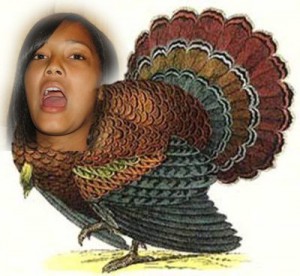
love. But how many of us question where this meat comes from? I certainly did not before I picked up “Eating Animals.” It surprised me that upwards of 10 billion animals are slaughtered each year for human consumption. But what truly horrified me were the descriptions of how factory-farmed animals are treated for the duration of their short lives and how the industry’s single-minded, relentless drive for profit compromises the quality and purity of the meat available to us.
This tainted quality is glaring within the industries of poultry and hog farming. Foer describes how defective chickens covered in pus and green poop are plopped into the same large tanks of chlorinated water as the slightly less unhealthy chickens that are sold to consumers. The chicken carcasses soak up this “fecal soup,” as people in the industry call it, thus adding water-weight, and in turn, financial revenue. Consumers are literally paying more for poop water.
Hogs, on the other hand, are very intelligent, social creatures. Without a stable social hierarchy, consistency, and pleasure in their life, they get anxious and their meat tastes worse. As far-fetched as this may sound, it is a proven fact that a pig that suffered stress and social turmoil throughout his life renders considerably mushier and less flavorful meat than a pig that did not endure such strife. Instead of improving the quality of pigs’ lives, factory hog farms tried, in vain, to remove a particular “stress gene” from the pigs’ gene pools. The suffering and torment of a factory-farmed hog is almost guaranteed. According to Foer, “unless you deliberately seek out an alternative, you can be all but certain that your ham, bacon, or chop was factory farmed.”
Foer’s thorough discussion of the atrocious environmental impact of meat-producing corporations and the threat of food-borne illnesses stood out to me, almost as much as the systematic disregard of human and animal welfare. This is because environmental catastrophes and potential flu epidemics are less concrete than the current, verifiable plight of farmed animals and America’s enduring struggle to decide whether gluttony or compassion should inform our decisions.
The issue of animal-consumption does not offend me because I love animals and want to save them. It offends me because the industry that supplies our animal-consumption is a gigantic and well-concealed territory of social corruption that creeps into every corner of American life. The animal farming industry is corrupt because it disregards human, animal, and environmental welfare in the name of profits. The irony is that we, the carnivorous consumers, are directly responsible for it.
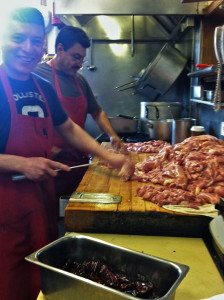
Naomi Stark (’12), a careful and well-informed meat consumer and senior at Urban, says that “the industry surrounding meat” is the problem. But I would argue otherwise. We are victims of our own ignorance because we empower and fund the people who disempower and exploit us. “Us” meaning the masses, or “we the people,” that our constitution so explicitly serves. When individuals buy meat from factory farms, they contribute to a collective effort that sustains the soulless, money-grubbing scoundrels at the top.
I say consumers are victims of ignorance because they are targets for media-filtered falsehoods. The commercial aspect of meat-production works hard to help us mentally divorce the meat we buy from the actual animal it constituted. As your average carnivore browses through his local grocery mart, humming to classical music while deciding which type of sausage to bring home, it rarely occurs to him that buying one of these packages has broader implications. He doesn’t think, “Hey, this pig may have been the one out of ten pigs that was prodded in the butt with an electrical rod!” Or, “Hey, I wonder if this pig carried and spread the newest strand of influenza this holiday season!” Or, “Hm, perhaps some unfortunate worker fell into a pool of this pigs feces and died of asphyxiation, just as this pig’s sister’s feces was funneled into field piping and sprayed out of a shit geyser, ostensibly fertilizing crops, but actually polluting someone’s rural cabin with air-toxins … You’ve just got to wonder … ” All of these thoughts might sound outrageous, or even humorous, but the sad truth is that every instance mentioned is a reality described, verified, and made traceable within the pages of Foer’s book.
When I walked into the Honeybaked Ham store at Geary and Divisadero streets in San Francisco, I sought the answer to only one question: “Do you know where the pigs you sell come from?” I asked an employee whose vocabulary seemed limited to, “We sell fresh honey-baked hams with a delicious glaze.” She had no idea where the ham came from. So she gave me a brochure upon request.
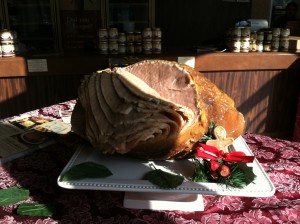
No exaggeration, the closest the brochure came to mentioning the existence of piggy life behind the glazed behemoths the franchise supplies to the masses was, “Every HoneyBaked Ham is hand-selected and carefully marinated.” How are they “hand-selected” and by who? Are they already lifeless globs of meat when this prestigious pig-connoisseur gives it the O.K.? Or does this individual saunter into the cramped, vomitous pig pen and point their knowing finger in the direction of a tasty-looking hog?
Well, the answers to these questions remain unclear. After calling two different numbers and being put on hold for a solid 15 minutes, Jackie from Anaheim, a representative of HoneyBaked Hams, answered my first question. She said that their pigs come from various farms across the Midwest. However, the names of these farms are withheld from employees, or at least those of Jackie’s stature. She assured me, without prompting, that these farms comply with USDA standards of animal and environmental welfare. Which, of course, means next to nothing in terms of commonly accepted standards of animal and environmental welfare in the larger world.
In his book, Foer spends a significant amount of time explaining how meat is not just something we eat. Americans’ lives revolve around meat. It is a part of our culture and traditions. We unite around food with family and friends. We make memories that are inextricably tied to our taste buds: what we ate, who we ate it with, and whatever connections were forged based off that shared experience around the dinner table.
Our meat consumption is also tied with the complexity of traditions. When traditions become outdated or endangered, how do we deal with losing them? Should we let them go or should we latch onto them with a stubborn grip? As Jonathan Safran Foer puts it, “life overflows with imperfections, but some matter more than others,” as he explains he and his wife’s decision to raise their son a vegetarian.
Foer, like most of us, has come to terms with the notion that sometimes the machine that slits the chicken’s throat will malfunction. It will miss its mark and an innocent chicken will suffer due to human or mechanical flaws. But he cannot accept that such an instance, and much worse, is widespread and ignored. He can no longer selectively forget the story behind the “animal chunk of protein” sitting on his plate.
Even though Safran Foer hails from a Jewish family that falls in line with the hungry, jovial, food-sharing Jewish stereotype, and even though his grandmother was a Holocaust survivor that worshipped meat and hoarded 50 giant sacks of rice in her basement well into her mid-90s, he has decided that it is time for his heritage and culture to evolve. Many people are scared at the prospect of adapting their traditions, for fear of losing what comprises their identity, but Foer wisely accepts that it is natural and necessary.
This flexible approach to traditions and habits proves both helpful and hurtful to the problems surrounding our meat consumption. Johanna Malaer (’12) explains, “the industry is rushed and inhumane because it works to satisfy high demands. The demand for meat in America is super high. I don’t have a problem with the slaughter of animals, just the inhumane treatment of animals.”
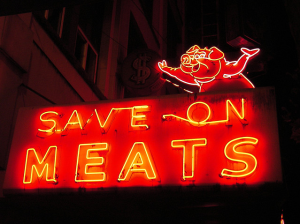
Urban science teacher Mary Murphy, who is “going veggie” post-Thanksgiving and until Christmas, says, “if someone said I couldn’t have meat for the rest of my life, I’d be fine. But so long as it’s an option, I’m going to eat it.”
The fact that meat is so available and prevalent makes vegetarianism not only difficult, but unrealistic. Murphy also describes how, during childhood, her family ate meat every night. She could not question the presence of meat on her plate, much less refuse to eat it. This scenario is probably familiar to many of us. In a situation where one is not thrilled to do, say, or eat something, we pick our battles. If it doesn’t offend or inconvenience us to a certain degree, we will do it. We may even let it absorb into the mundane routine of our lives. This is what I experience when my mother serves lamb, or when I take the PSAT. It is hard to distinguish when something is worth fighting for or against.
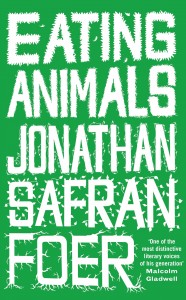
Safran Foer’s message is a compelling one: Pick your battles, but never forget one for the sake of
convenience. Now that I am aware of how my prosciutto, steak, and sushi came to my plate, and how my conscious decision to consume them really matters, I hope to be a vegetarian that eats fish (a pescetarian) as of Jan. 1. An arbitrary date, I admit, because it is hypocritical to continue acting against my moral compass for several more weeks. But at least I’m picking a worthy battle – and sticking with it.
